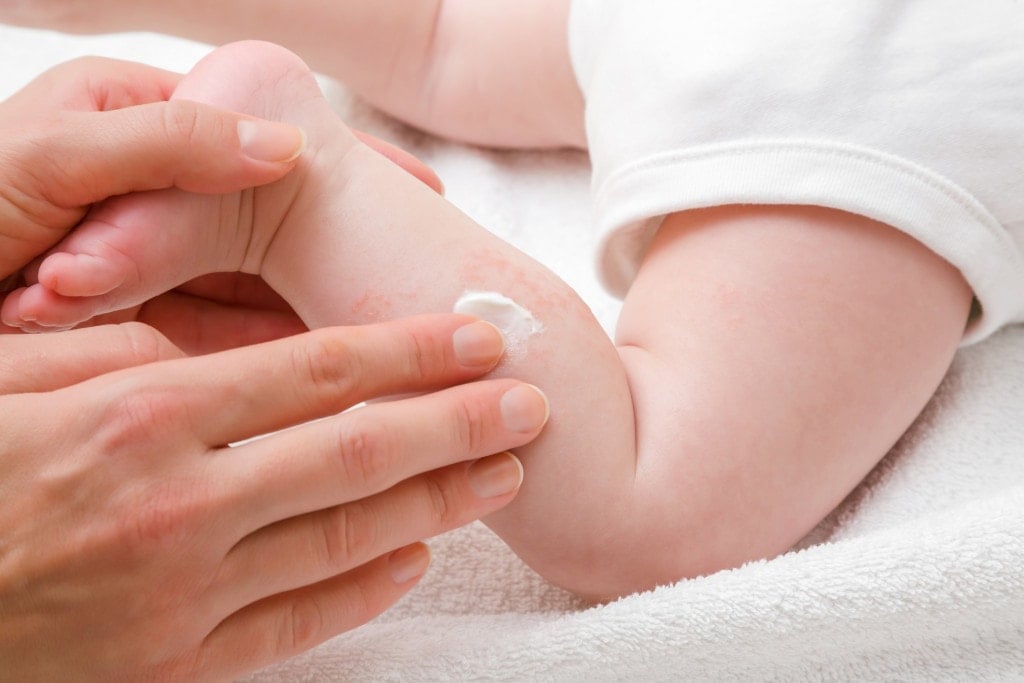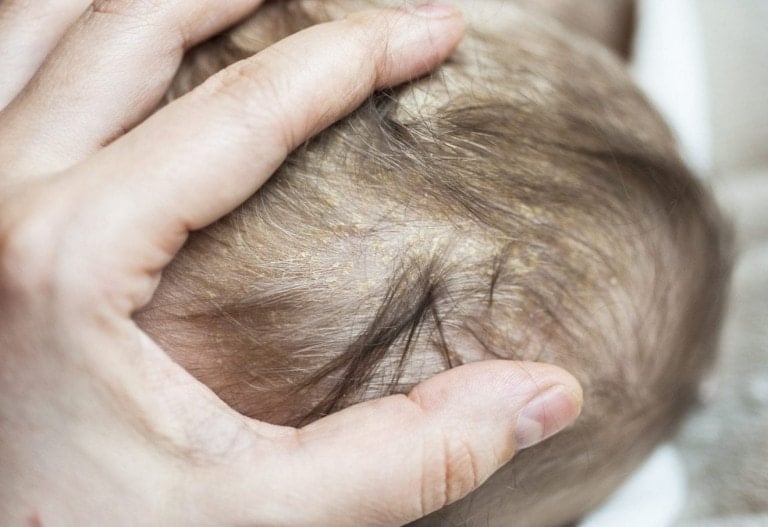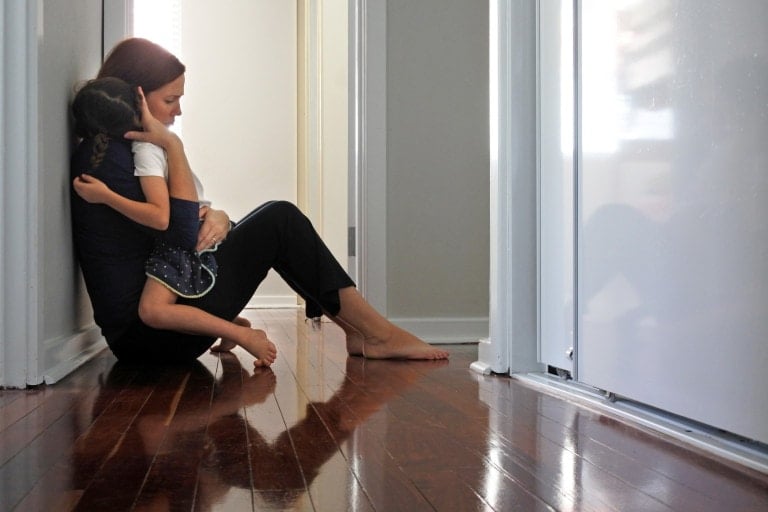Infant eczema is one of the most common skin conditions in children. It’s an itchy, patchy, red rash that often appears on the face and in folds of skin. Unfortunately, there is no known cure for this inflammatory condition, but there are ways to reduce it through prevention and topical treatment.
What is eczema?
Baby eczema describes a group of skin rashes known in medical jargon as atopic dermatitis. It can occur in babies as young as six to eight weeks old. Almost 20 percent of infants under the age of six months experience levels of eczema.1
“As a pediatrician, my heart breaks when I see a small baby covered with dry red scaly patches of irritated skin,” says Lisa Stern, MD, practicing pediatrician in Santa Monica, CA, senior partner at Tenth Street Pediatrics, and Gut Council Member for Jetson.
This group of rashes has various names, according to Stern, including:
- Cradle cap
- Infant seborrhea
- Contact dermatitis
- Allergic eczema
Prevention and Treatment
The most straightforward way to prevent eczema seems to be to avoid cow’s milk, but this might not work for all babies. The cow’s milk protein can be passed between breastfeeding mother to baby, so avoiding cow’s milk might be necessary if your baby experiences eczema.
However, do not let that dissuade you from breastfeeding. Studies show that one of the most promising ways to prevent eczema potentially is exclusive breastfeeding. Exclusive breastfeeding has been shown to have a protective effect against eczema and asthma. It also protects against atopic dermatitis by 27% in a low-risk population and up to 42% for babies with a family history of these health concerns.2
Additionally, reducing external triggers may help to prevent flare-ups. “When someone who is genetically predisposed to eczema comes in contact with a trigger such as soaps or detergents, certain fabrics like wool or synthetic fibers or food allergens, the skin becomes inflamed and irritated with patches of dry, itchy eczema,” says Stern.
If your baby is experiencing eczema and you suspect external factors might cause it, try using cotton fabrics and avoiding synthetic fibers like polyester. Use a mild fragrance-free detergent and add an extra rinse cycle at the end of your wash.
Food Intolerances Could Be to Blame
“A common trigger for the more severe forms of baby eczema may be food sensitivities such as cow’s milk protein sensitivity from breast milk or formula or after starting solid foods, other food triggers,” says Stern. There is a strong link between food and tolerances and this inflammatory skin condition, with almost 40 percent of babies with eczema having food intolerances, mainly cow’s milk.1 If you or any of your baby’s family members have a history of food intolerances, allergies, or asthma, your baby is much more likely to develop eczema.
Strategies for Less Itchy Skin
“There isn’t a one-size-fits-all treatment for eczema. A family may try various strategies to calm and heal the inflamed skin,” says Stern. Dr. Stern recommends the following precautions:
1. Remove the Cradle Cap’s Oily Scales
Remove the cradle cap’s oily scales by massaging the scalp with a simple oil (mineral, olive, or coconut). Let it sit for several hours or overnight. Loosen the scales with a soft brush and then wash with baby shampoo. Removing the scales on the scalp may have the effect of improving the skin rashes on other parts of the body.
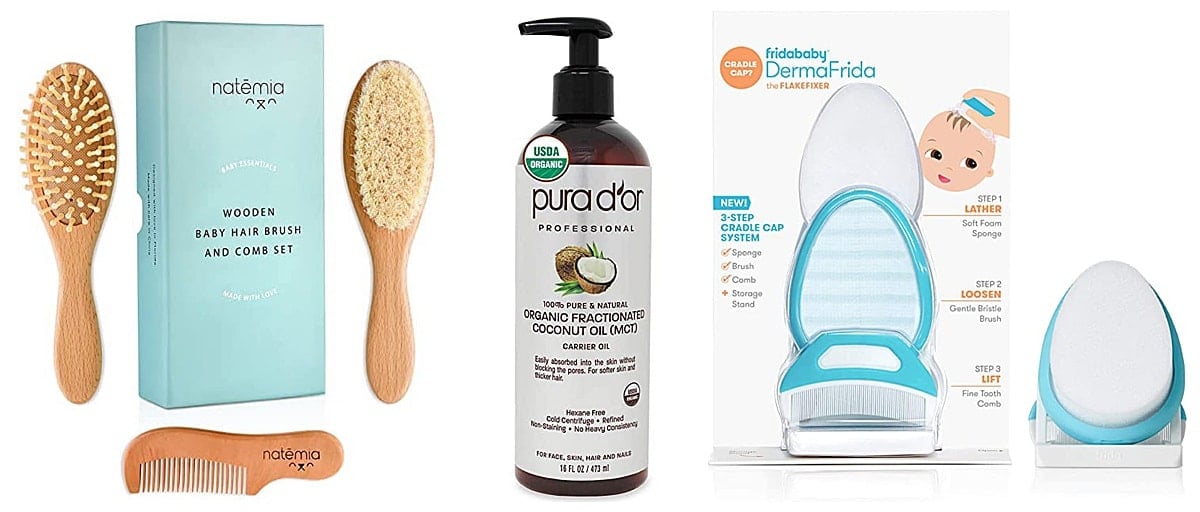
Buy Brush Set Buy Coconut Oil Buy DermaFrida
2. Apply Emollient Creams or Ointments to the Irritated Skin
Apply emollient creams or ointments to the irritated skin to seal and help the skin retain moisture, allowing healing. Tubby Todd’s All Over Ointment has been a favorite for years. Families swear by this miracle ointment when it comes to baby eczema.
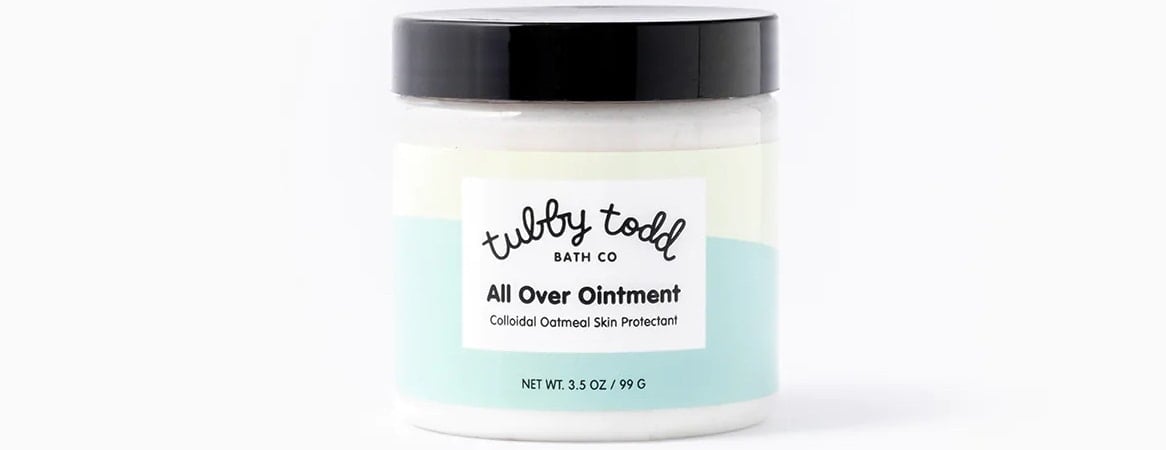
I also love this Exederm ultra hypoallergenic, gentle, and soothing intensive baby moisturizer. This deeply moisturizing cream helps rapidly soothe the baby’s red, cracked, or itchy skin.
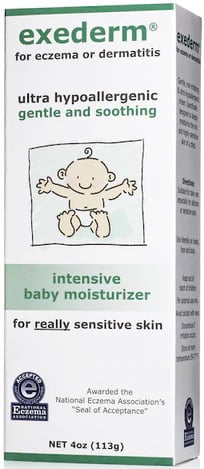
3. Swap Out Detergents and Soaps for Milder Products
Swapping out detergents and soaps for milder products may help reduce irritant triggers.
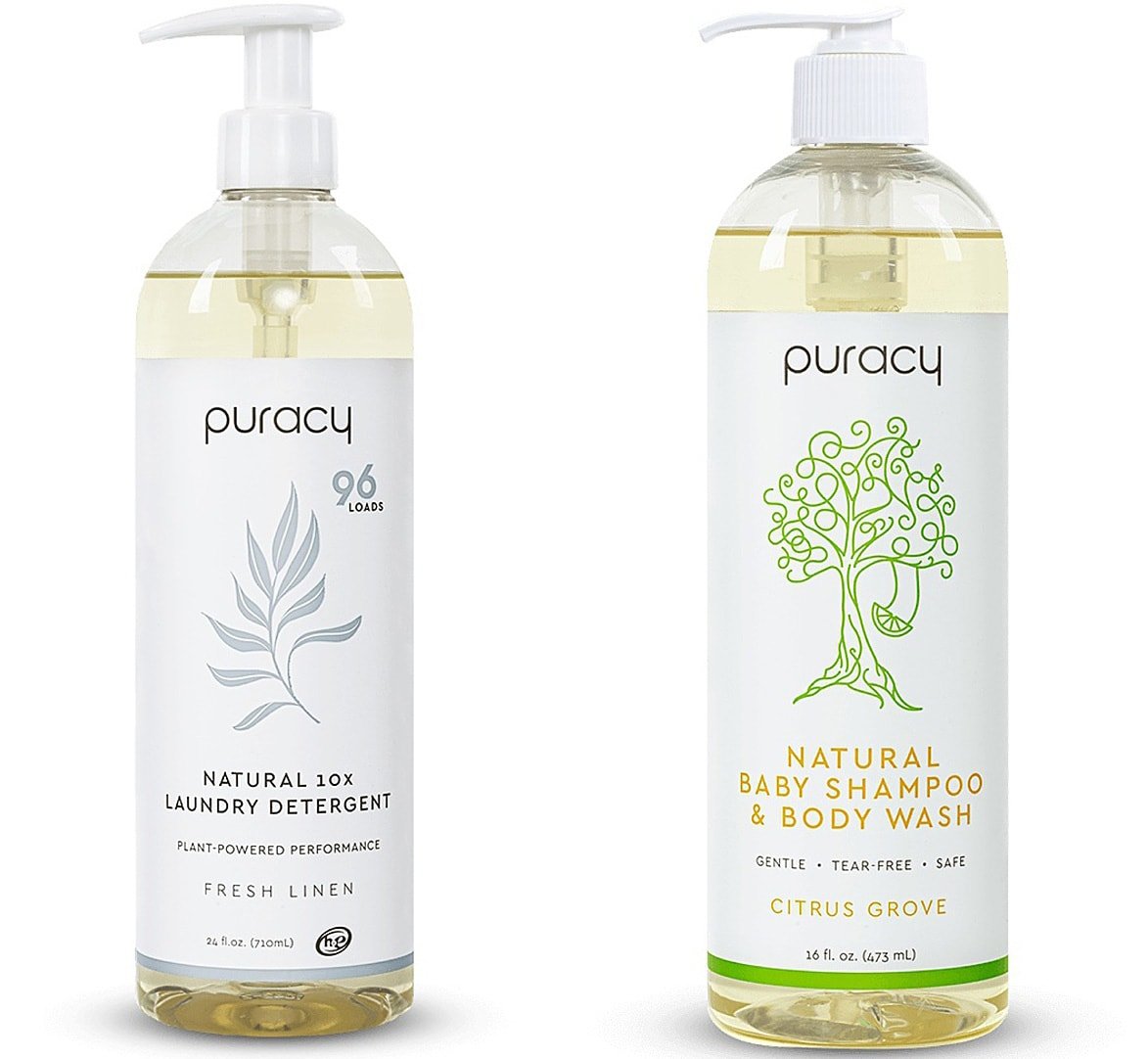
Buy Detergent Buy Shampoo & Body Wash
4. Make Dietary Changes
Making dietary changes may help. Nursing parents can stick to a dairy-free diet if a baby is breastfed. If a baby is drinking formula, try a hypoallergenic preparation.
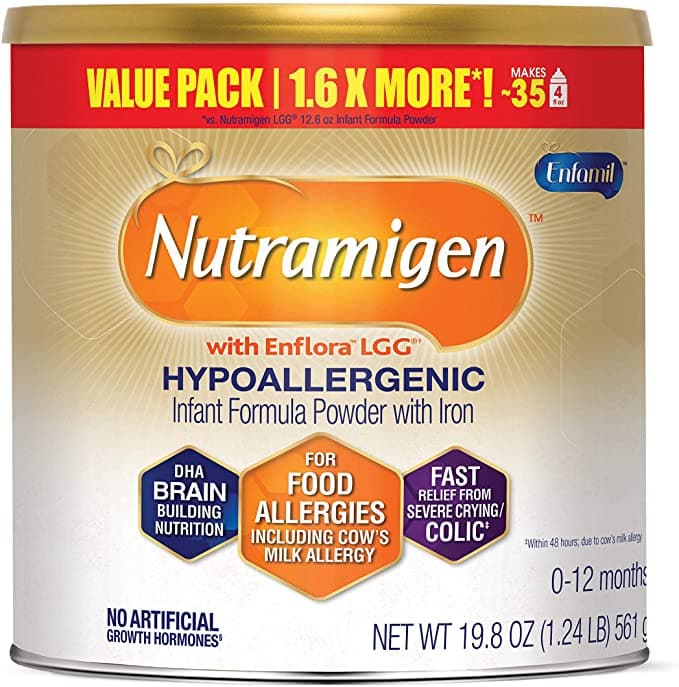
5. Try Adding a Probiotic Supplement
Another treatment option is to try adding a probiotic supplement to the baby’s milk. Lactobacillus rhamnosus GG has been the most extensively studied probiotic in babies who suffer from eczema. In several studies, it has proven to be beneficial.4 Consult with your healthcare provider about the benefits of using probiotics.
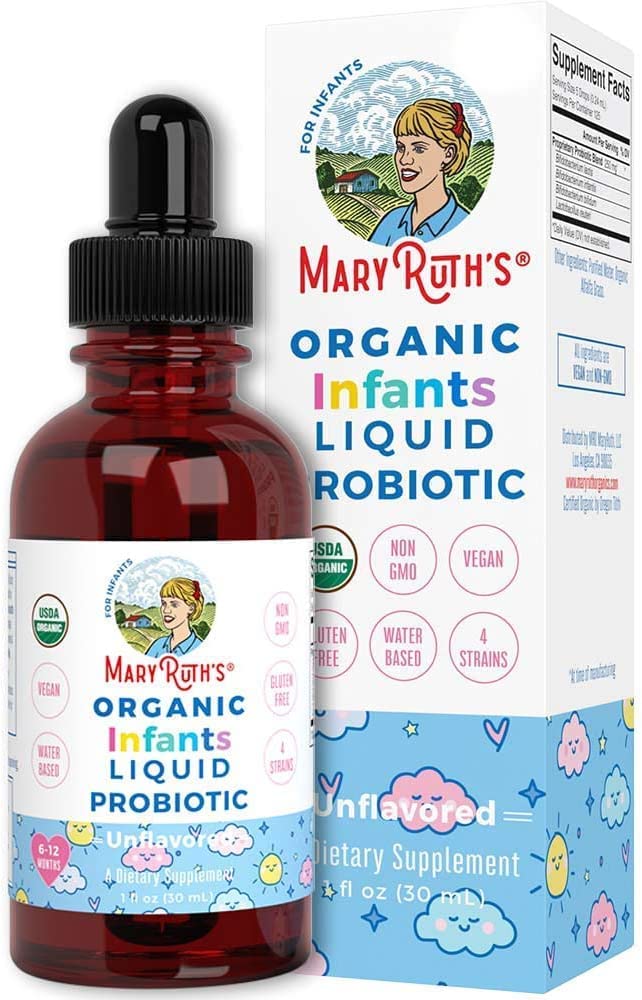
Good News: Eczema is Often Outgrown
Estimates show that approximately 2/3 of children outgrow eczema by the age of 3 years.3 Adults who suffered eczema as babies may also tend to have dry skin as adults. “Although treating eczema in babies may be frustrating and cause parental anxiety and some discomfort to the little ones, many babies and children will eventually outgrow their baby eczema,” says Stern.













